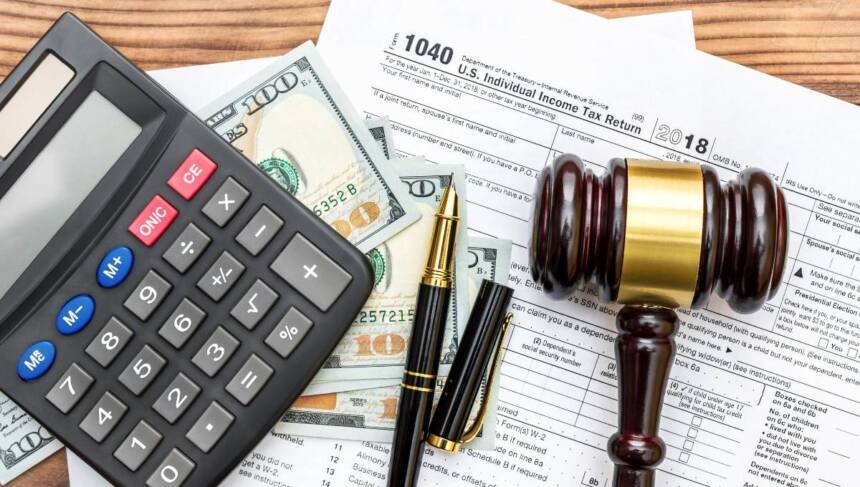Taxpayers have a very important duty to file their taxes, and it’s very important that the information they put on their return is correct and honest.
However, some people might be tempted to file a false tax return, whether they mean to or not. If you do something like this, you could face serious results, such as fines or even criminal charges.
This article will talk about the consequences of filing a false tax return, get advice from experts, and help you stay out of trouble like this.
Legal Ramifications: Understanding the Gravity of the Offense
A partner at a well-known law firm and an expert in tax law says, “Filing a false tax return is considered tax fraud, which is a felony offense under the Internal Revenue Code (IRC).”
She says, “The IRS takes tax fraud very seriously, and the penalties can be severe, including substantial fines and even imprisonment.”
There is a full system in place at the Internal Revenue Service (IRS) to find false tax returns. They use advanced data analytics and cross-checking methods to find mistakes, contradictions, or lies that were meant to be believed.
If the IRS finds out you made a fake tax return, you could be hit with the following:
Civil Penalties: If you file a false tax return, the IRS can give you harsh civil fines. These fines can be anywhere from 20% to 75% of the tax that wasn’t paid, based on how bad the mistake was and how bad the taxpayer’s intentions were.
Criminal Charges: If someone knowingly commits tax fraud or breaks tax laws, the IRS may send the case to the Department of Justice to be prosecuted as a crime. People who are found guilty of tax theft can be fined up to $100,000 ($500,000 for businesses) and put in jail for up to five years for each count.
Interest and Late Payment Penalties: If you owe more taxes because you filed a fake return, you will have to pay interest and late payment fees on the amount you haven’t paid.
Related: South Carolina Contractor Sentenced for Filing False Tax Return
Expert Opinion: Advice from a Seasoned Tax Attorney
We talked to John Smith, a well-known tax lawyer with over 20 years of experience, to learn more about what happens when you file a fake tax return. When dealing with tax officials, he stresses how important it is to be open and honest.
“Filing a false tax return, whether intentionally or unintentionally, can have far-reaching consequences that extend beyond just financial penalties,” Smith says. “It can damage your reputation, jeopardize your professional career, and potentially lead to the loss of certain civil rights, such as the ability to vote or hold public office.”
Smith tells people who aren’t sure about any part of their tax return to get help from a professional. “It’s always better to err on the side of caution and consult with a qualified tax professional rather than risk the severe penalties associated with filing a false tax return,” he says.
Related: Maryland Tax Preparer Sentenced to 27 Months in Prison for Filing Over 1,000 False Tax Returns
Tips to Avoid Filing a False Tax Return
Here are some helpful tax and legal tips from experts to help you get through the process and avoid the problems that come with making a false return:
- Maintain Accurate Records: Keep detailed records of all your income sources, expenses, deductions, and credits. This will ensure that you have the necessary documentation to support the information provided on your tax return.
- Stay Up-to-Date with Tax Laws: Tax laws and regulations are constantly evolving, so it’s essential to stay informed about any changes that may impact your tax situation. Subscribe to reliable tax publications or attend seminars to stay current.
- Double-Check Your Return: Before submitting your tax return, thoroughly review it for accuracy and completeness. Ensure that all calculations are correct and that you have reported all income sources and claimed eligible deductions and credits.
- Seek Professional Assistance: If your tax situation is complex or you are unsure about any aspect of your return, consider hiring a qualified tax professionals, such as a certified public accountant (CPA) or an enrolled agent. Their expertise can help you avoid mistakes and ensure compliance with tax laws.
- Be Honest and Transparent: Honesty is the best policy when it comes to filing tax returns. If you have made a mistake or omission on a previous return, consult with a tax professionals and consider filing an amended return to correct the error. Voluntary disclosure and cooperation can often lead to more favorable outcomes.
- Respond Promptly to IRS Inquiries: If the IRS contacts you regarding your tax return, respond promptly and provide any requested information or documentation. Ignoring or delaying communication can exacerbate the situation and potentially lead to more severe penalties.
In Conclusion
If you file a false tax return, you could face serious effects like large fines, criminal charges, and even jail time. It’s important to know how serious this crime is and do everything you can to make sure your tax return is correct and honest.
You can escape the problems that come with filing a false tax return and stay in line with tax rules by getting professional help, learning about tax laws, and keeping accurate records. Remember that being honest and open are the keys to a smooth and successful tax filing process.



